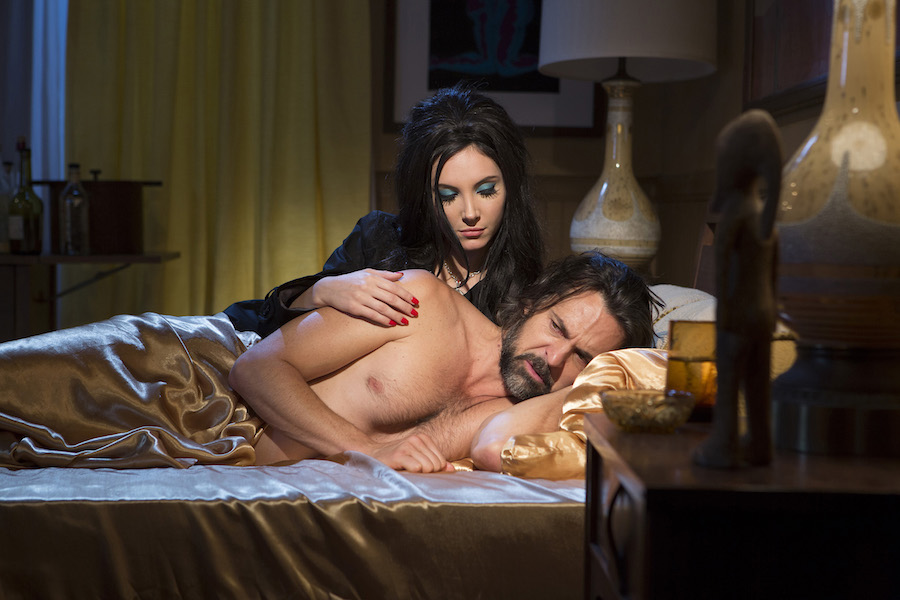‘The Love Witch’ A simple wink-wink pastiche of ’60s and ’70s exploitation sleaze wouldn’t be a bad thing. It’s tricky, these films, like “The Love Witch,” that try to speak in a dead cinematic language: You want to get the details right, but you don’t want to leave viewers simply cackling at how the past was so weird and backwards and dumb. That’s something filmmaker Anna Biller miraculously, heroically avoids. If one were to make an unholy mash-up of Russ Meyer, Radley Metzger and Herschell Gordon Lewis, it would probably look exactly like “The Love Witch.” The only time you can tell it wasn’t made in 1971 is when someone busts out a cellphone. Actually there are tell-tale signs that it’s not the real deal. There are big things missing: the (usually female) nudity that comes early and often, the well-from-ideal gender dynamics, the constant reminder that the gaze we’re looking through belongs to a male. This time the director is a woman. That’s partly where there’s more weens than boobs, despite the set-up. Our hero is a bodacious witch named Elaine (a very game Samantha Robinson) who uses “sex magic” to ensnare hotcha men and, invariably, kill them with love. But she means well: She genuinely wants ever-lasting amour, and is disappointed when her macho studs can’t handle her. RELATED: Review: “Jackie” is a strong movie about the deep funk following a tragedy The period detail is spot-on. Biller nails the artificial look of the era’s drive-in junk, from the loud colors to the rear projection driving scenes to the Ennio Morricone choirs over shots where all the set lights are on full blast. (The “Dragnet”-y fade-ins on police station scene scenes are particularly hilarious.) The precision of the recreations can even distract you from the film’s real mission, which isn’t subtle: It’s a feminist reworking of an old genre. And if you miss that, characters sometimes look nearly in the camera and feed you radical feminist lingo. Even that is partly done as camp, though — very sincere and very silly at the same time. It may seem Biller is mounting an assault on delightfully garish exploitation fare, ones with overemphatic titles like “Vixen!”, “Score” and “Two Thousand Maniacs!” But that’s not quite what she’s doing. She clearly loves these films; she wants to work with them, not take them down, using their language to get at something new and fun. And it is fun watching Robinson vamp and prowl and arch her eyebrows. Elaine’s not out to titillate men but doing it for herself. She’s perversely empowered and, as the film goes on, quite sad and lonely. But it’s not because she’s a woman; it’s because no one is her awesome as she is. It’s a lonely place, being the best.
Director: Anna Biller
Stars: Samantha Robinson, Jeffrey Vincent Parise
Rating: R
3 (out of 5) Globes
‘The Love Witch’ is an exploitation pastiche housing a feminist tract

Oscilloscope Laboratories
Follow Matt Prigge on Twitter @mattprigge


















